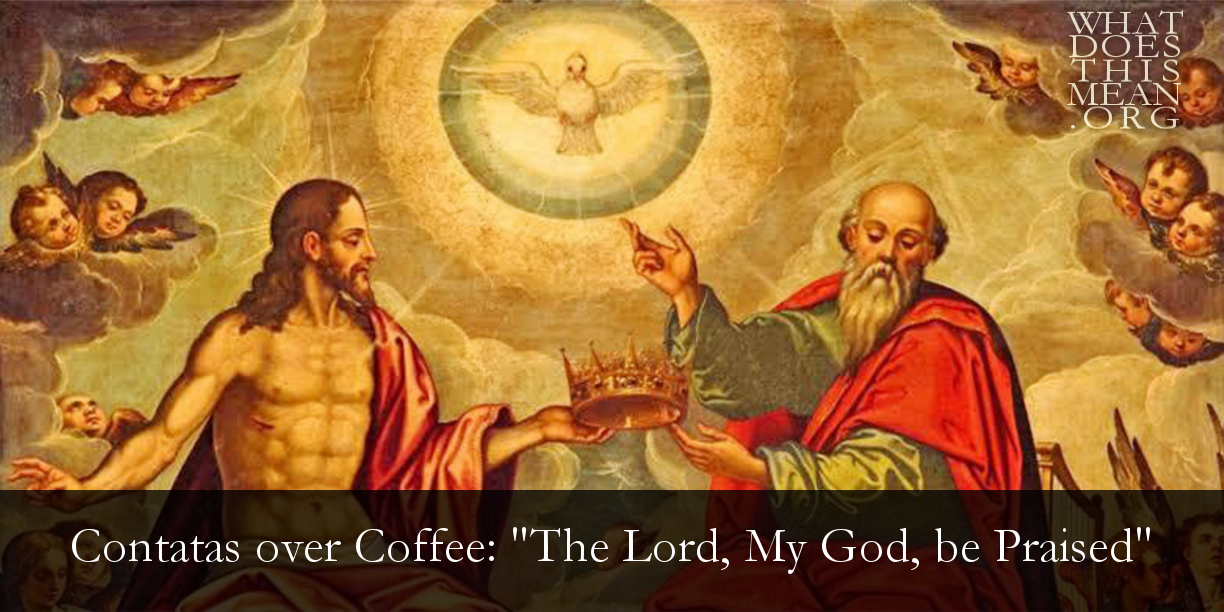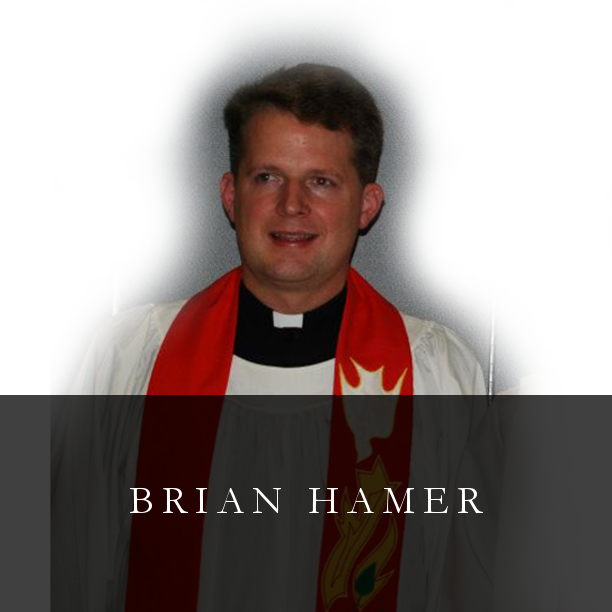1. Chorus
The Lord, my God, be praised, My light, my life from heaven;
My maker, who to me / Hath soul and body given;
My Father, who doth shield / And keep me day by day,
Doth make each moment yield / New blessings on my way.
2. Bass Aria
The Lord, my God, be praised, My trust, my life from heaven,
The Father's own dear Son, Whose life for me was given;
Who for me sin atoned / With His most precious blood,
Who giveth me by faith / The highest heav'nly good.
3. Soprano Aria
The Lord, my God, be praised, My hope, my life from heaven,
The Spirit, whom the Son / In love to me hath given.
'Tis He revives my heart, / 'Tis He that gives me pow'r,
Help, comfort, and support / In sorrow's gloomy hour.
4. Alto Aria
The Lord, my God, be praised, My God, who ever liveth,
To whom the heavenly host / All praise and honor giveth.
The Lord, my God, be praised, In whose great name I boast,
God Father, God the Son, And God the Holy Ghost.
5. Chorale
To Him with joyful song / Our praises we are bringing
And with the angel throng / Thrice "Holy" we are singing.
With one united voice / The Church doth Him adore.
The Lord, my God, be praised / Now and forevermore.
(Text: from The Lutheran Hymnal #38, translation by August Crull)
A quick survey of the German text of this Cantata reveals an emphasis on the word “blessed” (gelobet). The opening phrase, for example, is verbatim from Luther’s translation of I Kings 8:56, “Blessed be the Lord” (Gelobet sei der Herr), following a common Old Testament pattern of beginning prayers by extolling God for His gifts. Similar phraseology is found in numerous Psalm texts and of course in the opening phrase of the Benedictus (Lk 1:69). The word “blessed” occurs in each stanza, usually as the first word of the stanza, thereby placing the work of the triune God first and foremost on the mouths of the faithful.
The text also rehearses the work of the Trinity, including one stanza devoted to each person of the Godhead (stanza 1 for the Father, stanza 2 for the Son, stanza 3 for the Spirit, and stanzas 4-5 for the entire Trinity). This is fitting for Trinity Sunday and its appointed lessons, Romans 11:33-36 (the mysteries of the work of the Trinity) and St. John 3:1-15 (Baptism as new birth in the Trinity). In both Scriptures lessons and in this hymn text, the Father, Son, and Holy Spirit are named, preached, and pictured as working for us and for our salvation: “My (mein) Father,” “My God,” “My light, my life from heaven,” etc. Here the church sings of all the gifts of grace, for all Christendom, and for all eternity (st. 5).
Most worshipers today are accustomed to singing the text to the same tune that is usually sung with the text, “Now Thank We All Our God,” but the tune used in Bach’s day is the one now usually sung to the text, “Awake, Thou Wintry Earth.” The tune lends itself to the majesty of trumpets, the brilliance of woodwinds, and the rhythmic vitality and inherent flexibility of the Baroque chamber orchestra.
The first movement is buoyant, brilliant, and elaborate. The presence of timpani and three trumpets signals “a festival cantata with a large and bright orchestration” (Jonathan D. Green, A Conductor’s Guide to the Choral-Orchestral Works of J. S. Bach, p. 287). Amidst the perpetual motion in the orchestra, listen carefully for the melody or cantus firmus in the soprano line, complemented by the other voices.
| Chorus The Lord, my God, by praised, My light, my life from heaven; My maker, who to me / Hath soul and body given; My Father, who doth shield / And keep me day by day, Doth make each moment yield / New blessings on my way |
| Soprano Aria The Lord, my God, be praised, My hope, my life from heaven, The Spirit, whom the Son / In love to me hath given. 'Tis He revives my heart, / 'Tis He that gives me pow'r, Help, comfort, and support / In sorrow's gloomy hour. |
| Chorale To Him with joyful song / Our praises we are bringing And with the angel throng / Thrice "Holy" we are singing. With one united voice / The Church doth Him adore. The Lord, my God, be praised / Now and forevermore. |
| Almighty and everlasting God, who hast given unto us, Thy servants, grace, by the confession of a true faith, to acknowledge the glory of the eternal Trinity and the in power of the Divine Majesty to worship the Unity : we beseech Thee that Thou wouldst keep us steadfast in this faith, and evermore defend us from all adversities; who livest and reignest, ever one God : world without end. Amen. (The Brotherhood Prayer Book, p. 483) |



 RSS Feed
RSS Feed
